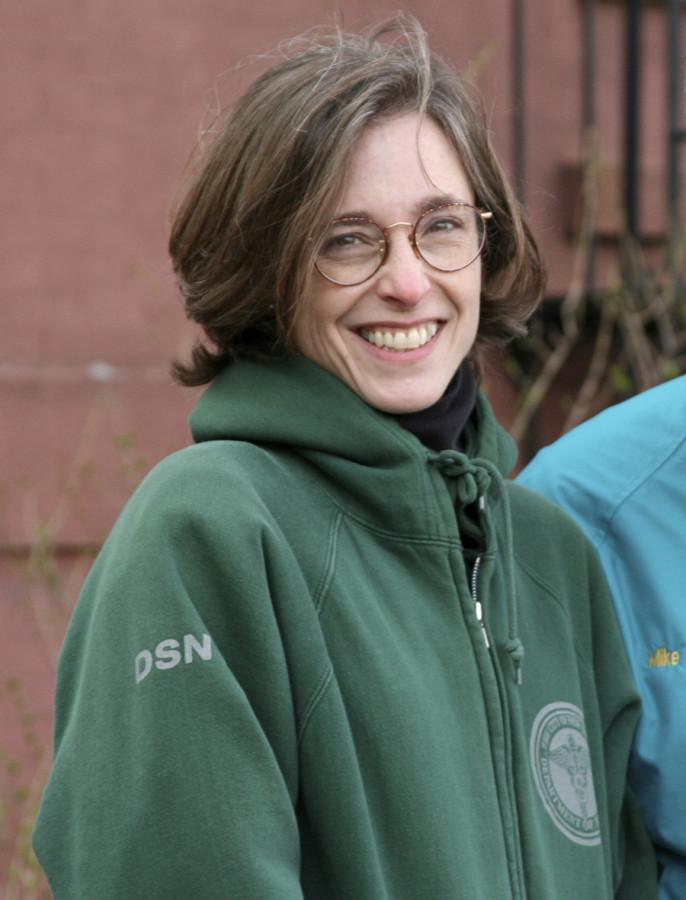Professor becomes sanitation worker for research
Professor Nagle has been working as a sanitation worker to study the types of things that are thrown away.
September 21, 2015
NYU professor Robin Nagle has embarked on a mission to compel the public to think twice about how their trash is disposed of and how uplifting those tasked with this mundane duty can make all the difference. After CBS News picked up a story about what she has been doing recently, Nagle and her dirty work have been thrust into the spotlight — and that is exactly what she wants.
In 2006, Nagle was named anthropologist-in-residence for New York City’s Department of Sanitation. Under this title, she worked to help New York understand the importance and complexity of the department. Her endeavor centers around the fact that the city’s sanitation workers are invisible to an overwhelming majority of the public.
Nagle battles with what she calls “throwaway culture” through public talks and projects that aim to create a more informed relationship between the people of New York and their sanitation workers.
For her 2013 book “Picking Up,” Nagle spent time as a uniformed sanitation worker. She drove the trucks, hauled the garbage bags off of the curbs and entered the community of ignored superheroes who collect 11,000 tons of trash from the city every day.
Former director of the Bureau of Waste Disposal Martin Bellew said Nagle’s book will help people understand sanitation.
“The public, in general, does not think about the process,” Bellew said. “Sanitation is invisible until something happens to bring it to the forefront.”
A large part of Nagle’s job includes working with sanitation men and women to help them see the importance of their work. She talks with new hires about the value of keeping the city clean.
“Robin reminded us how important this job is for the public of New York,” Bellew said. “And when you’re proud of what you do, it’s easy to do it.”
Nagle’s book also details the dangers of the job, claiming sanitation workers in New York City are three times more likely than police officers or firefighters to be killed on the job. The efforts of sanitation workers are juxtaposed with examples of ignorant complaints and rude comments from passersby.
In addition to her book, Nagle is the founder of the Department of Sanitation’s Oral History archive, a collection of interviews created in 2011 to help document the department’s largely unnoticed work. Nagle also connected the Department of Sanitation with Open House New York, which allowed public admission into the sanitation department for educational purposes.
Nagle also incorporates this call for recognition of the workers into her classes at NYU.
GSAS alumna Alexandria Brahler took Nagle’s class titled “Garbage in Gotham: The Anthropology of Trash,” and is still mindful of what she learned from her.
“I thank them in person now, whenever I can,” Brahler said.
Nagle challenges the public to acknowledge sanitation workers and to adjust their lifestyles to minimize waste. She said it is necessary to think about where “away” really is when we throw something out, which is especially pertinent in the midst of the global environmental crisis. In the future, Nagle plans on opening a Museum of Sanitation.
“Why do we ignore the people who save us from ourselves every day?” Nagle said.
A version of this article appeared in the Monday, Sept. 21 print edition. Email Carmen Russo at [email protected].

























































































































































